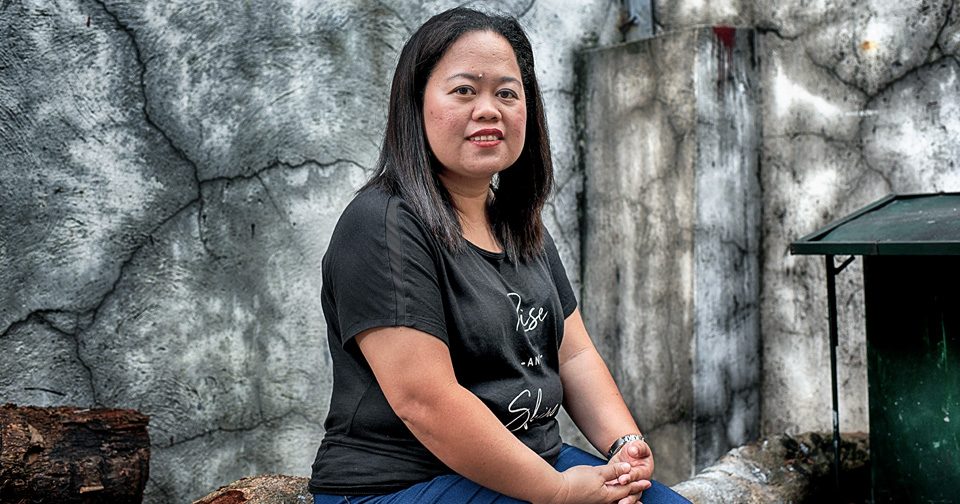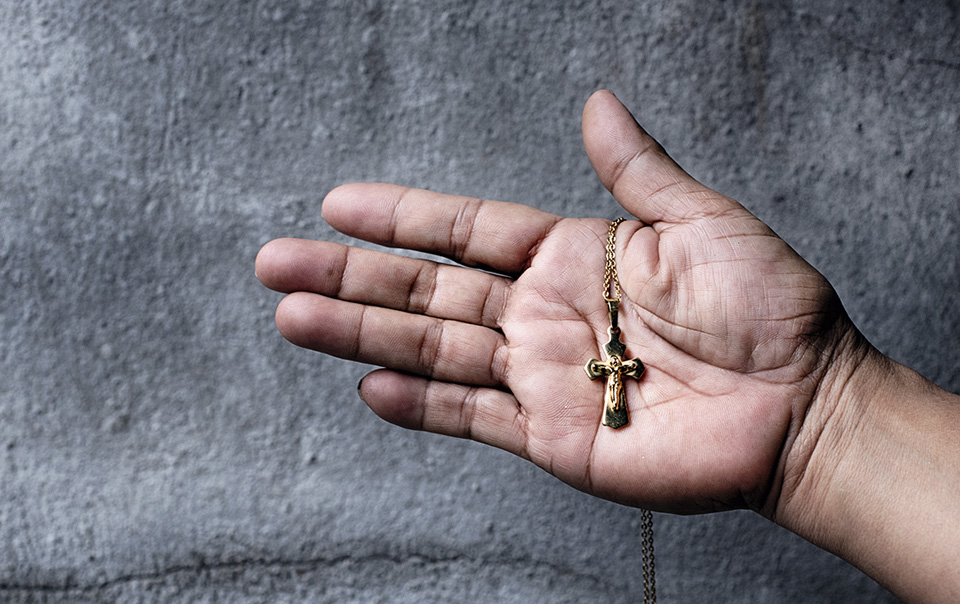Journeys out of the Ordinary | Novelita’s story
“Knowing our rights and where to get help make migration safer.” —Novelita Palisoc, Philippines
Date:

I was in my third year of college in the Philippines and worked part time as a domestic worker when I took a detour from my studies to go to Qatar to work. My Filipino employers at that time had a grandchild and the parents of that child were moving to Qatar and asked me to go with them to take care of the baby. I had planned to come back and finish my studies later, and I expected to earn a lot of money in Qatar to pay for my studies and to help my parents and siblings.
The agreement was that I would only take care of the baby. But when we got to Qatar, my employers brought me to an agency and said that I must get another job in order to get a visa. And I didn't live with the family, I lived in a compound.
Because I already knew my employers from back in the Philippines, I expected to be treated well. The woman was the daughter of my previous employers and had always been kind. But once we got to Qatar, she was not kind anymore and I didn't know my rights as an employee. She was verbally abusive and made me go and work in different houses. I was paid about half of what was promised, and I became very skinny because they didn't give me any food. I had to pay for food myself.
I also worked as a bus conductor and cleaner at a school, and one day the driver of the bus attacked me in the bathroom and tried to rape me. I fought him off, and one of my friends arrived and rescued me. I complained to the management, but the bus driver denied everything, and the employer did nothing.
I didn't want to continue working with the man who had attacked me, so I transferred to another job as a laundry worker. And again, another colleague, who was a caretaker, came into the kitchen and attacked me when I was doing laundry. I picked up a knife to scare him off, and when my supervisor arrived, I told him what had happened. This time the supervisor fired the attacker.
But I still felt alone, as if I had nobody to talk to. I didn't know who to trust. I also felt disappointed, because by this time all my classmates back in the Philippines had graduated while I had lived for two years with verbal abuse from my employer and sexual harassment and discrimination at work. I also didn’t earn very much money. I didn't know that there were organizations that could help me.
After two years of this, I went back to the Philippines and finished my studies with a bachelor's degree in secondary education. I worked for five years as a teacher, and then one of my friends invited me to join a union for domestic workers. At that time, I didn't want to be involved in a union. However, I went to an orientation seminar anyway, and I was impressed. I learned about my rights as a worker and about benefits. I also learned that going through a licensed agency is best, and I learned the importance of pre-departure seminars, and especially, knowing where to get help.
My message to the next generation of women migrant workers is: “Learn about your destination country and find out which organizations can support you if needed. Never be afraid to seek help!”
Object description:
My rosary accompanied me during my journey giving my protection and hope.
The first time many women seek help is when they return home. Safe and Fair works to build the capacity of police, health care providers, labour attaches and immigration officials in both origin and destination countries. Frontline service providers in countries of origin must know how to respond appropriately to women migrant workers who have experienced violence.
